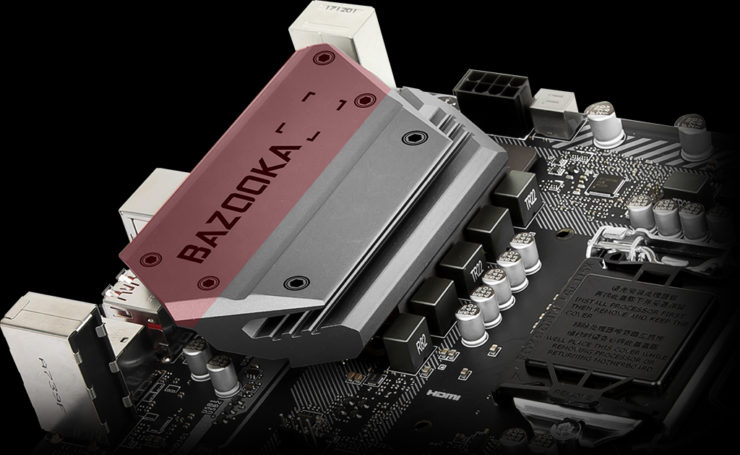Msi claims his mortar motherboard heatsink performs better than his asus

Table of contents:
MSI has compared the design of heat sinks on its motherboards with those implemented on ASUS motherboards, rating its own Mortar solution as much better performing. Although the MSI comparison has some merit, we need to provide more detail on whether this comparison makes sense and whether it would matter to us consumers.
MSI boasts of its Mortar motherboard heatsink

The first thing to comment is that the comparison being made here is better at the budget level for B360 motherboards, so we are talking about an Intel platform. And since this is a B360 platform, we shouldn't expect to equip any of them with an unlocked processor, as overclocking is restricted on these motherboards, so it's a waste of money if you're thinking of doing so. But, even so, these motherboards support all 8th Gen CPUs and there are a range of blocked processors in the Core i7 and Core i5 segment with which these motherboards can be coupled.
To ensure maximum CPU stability, motherboard manufacturers implement a range of solutions that include good VRMs for power delivery and decent coolers. Nothing fancy about for these mid-range series.
As we know, as the load is put on the individual VRMs, they get hot. This heat can be decreased by increasing the number of phases, distributing power and heat throughout the entire assembly, but although the phases individually suffer from less heat, the entire assembly must be properly cooled.

In comparison, MSI compares its $ 100 Mortar in the B360M to ASUS '$ 110 B360-G STRIX. The MSI board offers 7 phases compared to ASUS 6, it has x4 lanes dedicated to double M.2 slots compared to only one on ASUS board (1 M.2 @ x2 slot) and lastly it uses a Larger heat sink for VRM compared to ASUS. MSI calls it the 'extended heat sink' and this design is seen in all of its current generation of Intel and AMD platform motherboards. The heatsink offers 26% more cooling area, lowering temperatures up to 12C on a 95W CPU compared to ASUS B360-G Gaming, and at the same time offers 12% more performance due to performance much more efficient and calibrated processor.
Of course, this comparison uses only ASUS motherboards, but not other major manufacturers that also offer quite robust solutions, such as AORUS or ASRock itself.
Update by the Editorial: After reviewing the graphics and components that MSI indicates on its blog, we see that there is no equitable comparison between the two products, since MSI indicates heatsinks located in different areas and this is not a real comparison. From Professional Review we have tested both manufacturers at the level of motherboards and both offer quality components. During these years we have tested Asus motherboards and we can affirm that its components are first class. If you have doubts which motherboard to choose, you can ask us in the comments or in our specialized hardware forum.
Doom maker claims nvidia outperforms amd on graphics cards by providing better drivers

John Carmack claims that Nvidia outperforms AMD in better drivers and software for its programming. Although AMD have the same or better graphics cards.
Micro atx motherboard: is an atx better than an itx?

If you have not yet decided between buying a micro ATX or ITX motherboard, here we will see the advantages and use of each of them
John carmack claims better graphics drivers from amd and nvidia

According to John Carmack, controller teams often make development mistakes that break game optimizations.




